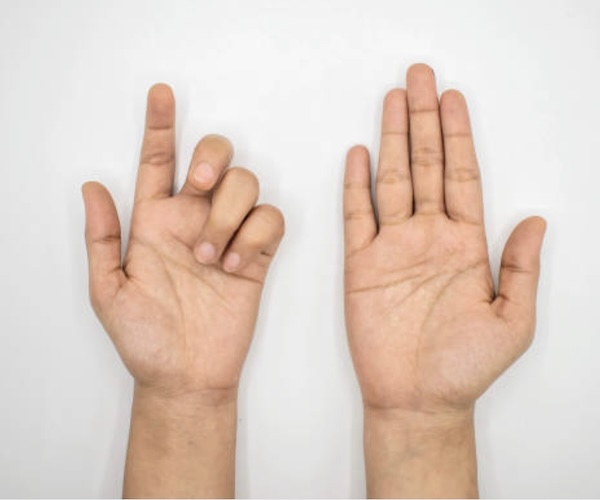
What is Paralysis?
Paralysis is the loss of muscle function in one or more parts of the body, typically resulting from nerve damage, brain injury or spinal cord trauma. It can affect movement, coordination and sensation. Paralysis may be partial or complete, temporary or permanent, depending on the underlying cause and severity. It can impact just one area (like a limb or facial muscles) or involve widespread muscle groups.
What causes Paralysis?
Paralysis is usually caused by damage to the nervous system—especially the brain, spinal cord or nerves. Common causes include:
- Stroke: A leading cause of sudden paralysis, especially on one side of the body
- Spinal cord injury: Accidents or trauma that sever or compress the spinal cord
- Brain injuries from trauma, tumors or infections
- Neurological disorders such as multiple sclerosis or cerebral palsy
- Autoimmune conditions like Guillain-Barré syndrome
- Infections that affect nerve function, such as meningitis or encephalitis
What are the symptoms of Paralysis?
The symptoms of paralysis depend on the type and location of nerve or brain damage. Key signs may include:
- Inability to move one or more limbs
- Loss of sensation or numbness
- Muscle stiffness or flaccidity
- Difficulty speaking or swallowing (in facial paralysis)
- Imbalance or poor coordination
- Pain or discomfort in affected areas (in some cases)
Paralysis can affect either one side (hemiplegia), both legs (paraplegia) or the entire body below the neck (quadriplegia).
How is Paralysis diagnosed?
Diagnosis of paralysis involves a combination of clinical evaluation and imaging. Doctors may use:
- Neurological examination to assess muscle strength and reflexes
- MRI or CT scans to identify brain or spinal cord damage
- Electromyography (EMG) to test nerve and muscle function
- Blood tests to detect infections or autoimmune conditions
- Spinal fluid analysis, if inflammation or infection is suspected
What are the conventional treatments for Paralysis?
While not all types of paralysis are curable, several treatments can help improve function and quality of life:
- Physical therapy to maintain muscle tone and improve mobility
- Occupational therapy to regain daily living skills
- Speech therapy in cases affecting facial or vocal muscles
- Medications to manage pain, spasticity or underlying conditions
- Surgical interventions, such as nerve grafting or decompression
- Assistive devices, including braces, wheelchairs or prosthetics
Is there an ayurvedic treatment for Paralysis?
Yes, Ayurveda provides a holistic approach to managing paralysis, known in Ayurvedic texts as “Pakshaghata”. Paralysis is often considered a result of Vata dosha imbalance, particularly affecting the nervous system. Ayurvedic treatment focuses on restoring balance, revitalizing nerve function and detoxifying the body.
- Nutritional counseling to create a calorie-controlled, balanced diet
- Exercise programs tailored to individual fitness levels
- Behavioral therapy to address emotional eating and motivation
- Medications, in some cases, to support weight loss
- Bariatric surgery for severe obesity or when other methods fail
Ayurvedic treatment for Paralysis include:
- Abhyanga (therapeutic oil massage) to improve circulation and relax muscles.
- Swedana (herbal steam therapy) to ease stiffness
- Basti (medicated enema) to balance Vata dosha
- Nasya (nasal therapy) to strengthen the brain-nervous system connection
- Herbal medicines: Formulations with Ashwagandha, Bala, Rasna and Dashmool are used to support nerve regeneration, reduce inflammation and enhance strength.
- Diet and lifestyle changes: A warm, nourishing, Vata-pacifying diet is recommended along with proper sleep and gentle movement.
- Yoga and pranayama: Specific breathing exercises and mild stretches aid in restoring energy and muscle coordination.
Ayurvedic treatment is especially beneficial in improving post-stroke recovery, managing chronic nerve damage and supporting long-term rehabilitation, especially when started early.